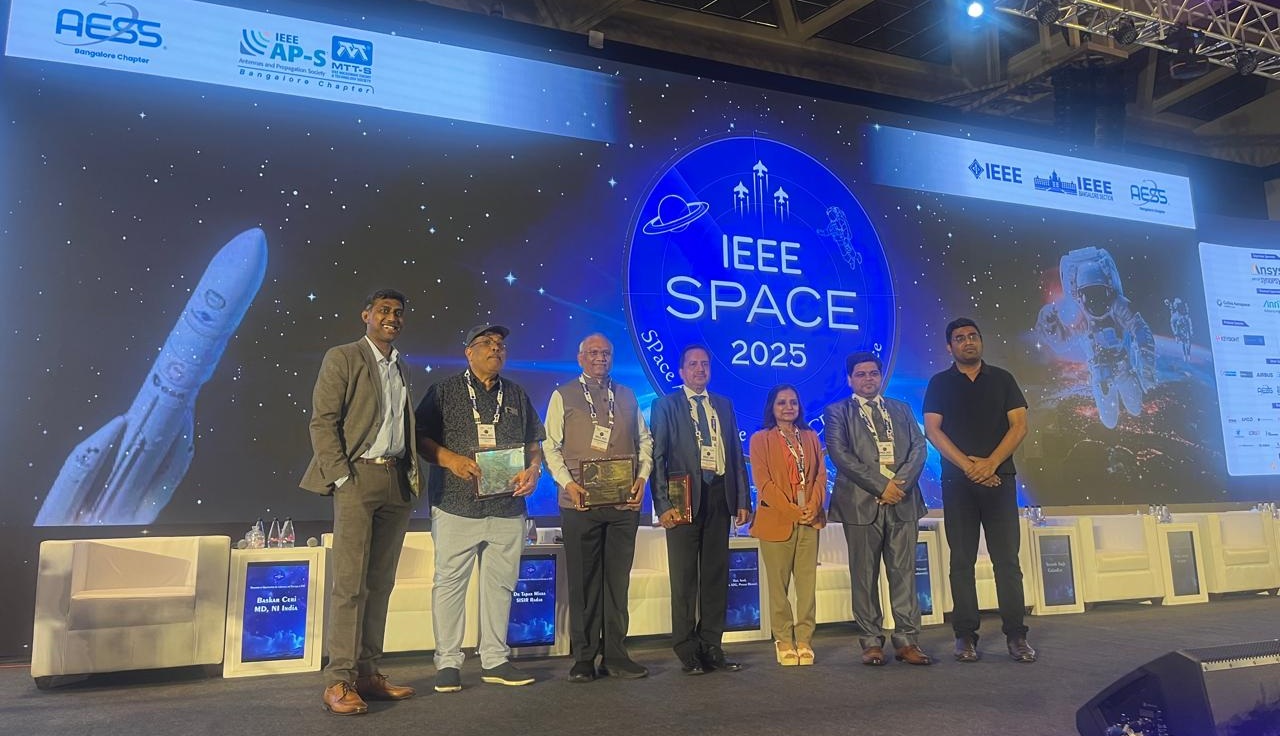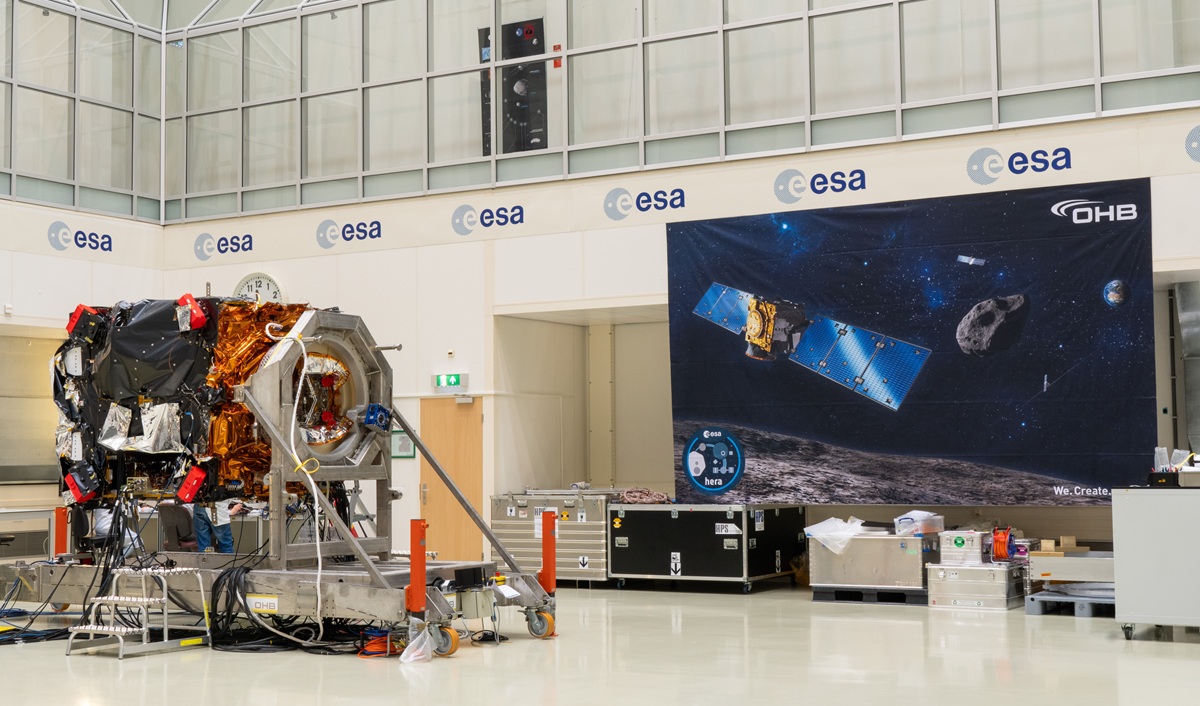Bengaluru: India stands on the brink of a new era in space innovation. The ambition of a nation that once launched its first rocket from a humble St. Mary Magdalene church in Thumba, Kerala now finds itself at the heart of a burgeoning private space economy. The clarion call for Indian space startups rings louder than ever, echoing through the halls of global forums and innovation summits.
At the ongoing IEEE Start Up 2025 conference in Bengaluru, this message was articulated powerfully by Dr. Tapan Misra, Chief Scientist at SISIR Radar and one of the luminaries behind India’s space imaging success. His rallying cry: “There’s no better time than now for space startups.”
The Legacy That Inspires
Dr. Misra is not merely a voice of authority; his legacy is woven into the fabric of ISRO’s triumphs. Renowned globally for his expertise in Imaging Radar SAR (Synthetic Aperture Radar), he’s famously known as the “father” of the RISAT series — satellites that thread through the core of India’s strategic, tactical, and civilian space applications. These achievements anchor his belief that Indian startups have the potential not just to compete, but to lead.
Yet, Dr. Misra’s challenge to young entrepreneurs goes further. “It’s not enough for startups to offer better or cheaper solutions; what truly matters is to outperform the standards set by ISRO or DRDO,” he counsels. Excellence, not just affordability, is the benchmark. Indian startups must identify technology gaps – from rocket systems to payloads and data applications – and boldly bridge them.
Humble Beginnings, Big Dreams
Entrepreneurship is rarely about instant stardom. Neha Satak, founder of Astrome and a seasoned aerospace engineer, embodies this principle. She urges fledgling startups not to underestimate the power of starting small – focus on subsystems, learn the ecosystem, and build capabilities from the ground up. For example, if building an entire rocket feels daunting, begin with key subsystems: propulsion units, communications arrays, or sensor suites.
Satak highlights the government’s savvy initiatives, such as Innovations for Defence Excellence (iDEX), which connect startups and MSMEs to defense and space innovation pipelines. These programs not only infuse capital but also accelerate India’s transformation from a tech importer to a global innovator.
A Changing Geopolitical Landscape
India’s startup revolution in space is propelled by shifting global currents as much as by local aspiration. Suyash Singh, co-founder of GalaxEye, notes that contemporary conflicts and geopolitical flashpoints – from Ukraine to the Middle East – amplify the demand for cutting-edge satellite imaging and rapid, reliable intelligence. Startups like GalaxEye are rising to the challenge, designing indigenous, multi-sensor imaging satellites (combining SAR and MSI sensors) that deliver all-weather, anytime intelligence for uses spanning national defense, agriculture, mining, and disaster relief.
This dual use – both strategic and commercial – is driving a surge in interest and investment. The scope is vast. From enhancing smart city infrastructure to real-time environmental monitoring, Indian startups now have the tools, talent, and resolve to catalyze change not just at home, but globally.
The Dawn of Democratized Space Access
In the past, bureaucratic hurdles often stymied progress. Sunil, the former Additional Director General at Prasar Bharati and now President of IETE, recalls when it would take up to seven years just to secure band link leases from established players like ISRO or DRDO for broadcasting. Those days are fading fast. Today, startups harness space-based applications, big data analytics, and AI-driven insights to address urgent urban challenges and unlock the full promise of India’s smart cities.
With this democratization of access comes a rush of possibility. More private players mean more mission diversity, faster technology cycles, and – most importantly – genuine choice and competition.
Overcoming Funding Hurdles
Despite the excitement, some challenges remain. Baskar Ceri, Managing Director of NI, points out that while Indian startups have honed their prowess in software, funding for hardware-intensive space projects is not yet at par with global leaders. The United States and China each boast 500 or more active space startups; by contrast, India’s count hovers around 220–240.
This disparity is not just a metric; it’s a clarion call to Indian innovators, investors, and policymakers. If India is to seize its rightful place, the nation’s risk capital ecosystem must evolve beyond software, nurturing the audacious risk-takers working on the next generation of launch vehicles, satellites, and space applications.
Learning from Pioneers
Presiding over the panel was Dr. Subba Rao Pavuluri, himself an emblem of Indian private initiative in high technology. Having served ISRO for over forty years, he established Ananth Technologies Limited in 1993, pioneering the design and fabrication of mission-critical systems for India’s space and defense programs.
Dr. Rao’s reminiscence is poignant and telling: ISRO itself began as a startup of sorts, operating with limited resources, scant infrastructure, and a handful of determined visionaries. Today, ISRO is celebrated globally for its ingenuity, reliability, and achievement. Startups, Dr. Rao implies, can achieve the same – by daring to dream and embracing India’s legacy of “doing more with less.”
Why Now? The Golden Opportunity
The convergence of talent, capital, and policy support makes this moment unique:
- ISRO’s track record and mentoring potential: Decades of know-how are now being shared with the private sector.
- Favorable regulatory shifts: Policy changes have opened doors for private launches, satellite building, and downstream services.
- Rising market demand: Applications in defense, agriculture, telecom, and urban development create strong commercial incentives.
- Vibrant startup ecosystems: India’s tech hubs, like Bengaluru and Hyderabad, now teem with innovation clusters, investors, and mentors eager to support the next big leap.
The Road Ahead
For the dreamers and doers of India’s space sector, the time to act is now. The journey may involve uncertainty – building world-class technology, securing funding, and withstanding global competition is never easy. But the rewards are spectacular: impact that stretches far beyond profit, shaping the destiny of a nation and the future of humanity.
India’s space startups are no longer the new kids on the block; they are the inheritors of a tradition of boldness and innovation. If history is any guide, those willing to take the leap will not only transform the sector, but inspire generations to come.





